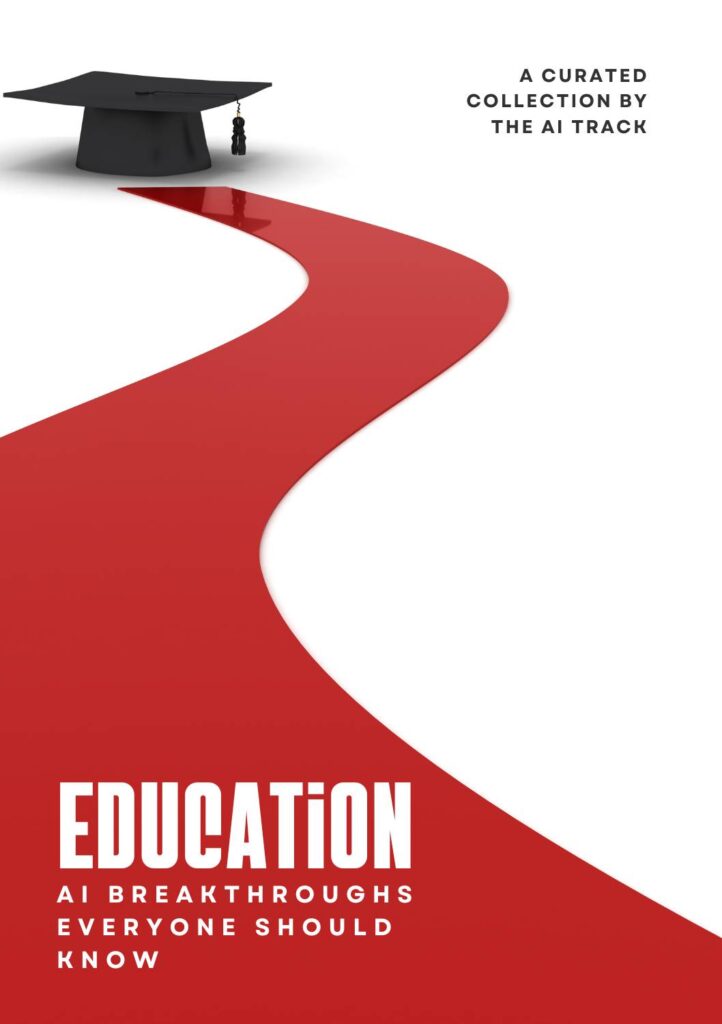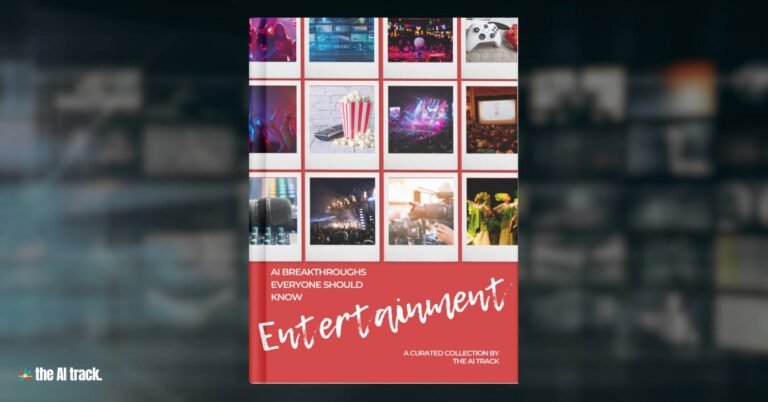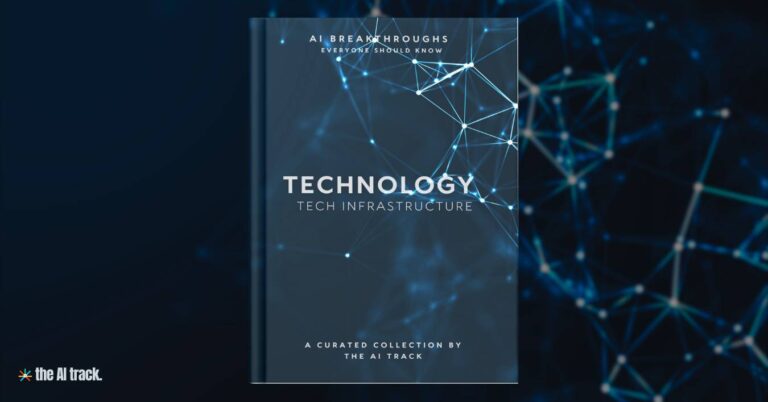
AI is revolutionizing education by personalizing learning experiences and expanding access to knowledge. Explore the most significant AI breakthroughs in education that are transforming this field in many ways.
Browse all the other fields in our curated collection of the most important AI Breakthroughs. Each section offers insights into how AI is transforming different sectors, providing a comprehensive view of its impact across a wide range of disciplines.
AI Breakthroughs in Computer Science - At a Glance
AI Impact on Education: 15 Ways It's Transforming Education!

The AI Track’s extensive analysis of the groundbreaking effects of AI in Education, spotlighting artificial intelligence’s prowess in curating bespoke learning journeys, crafting smart academic content, identifying learning impairments at an early stage, and integrating compelling game-based learning methods.
Gauth AI, powered by the Chinese ByteDance, is revolutionizing homework for students
Original Article Title:
Millions Of Teens Are Using A Homework App From TikTok’s Chinese Parent Company.
Source: Forbes
Date:
Gauth AI, a homework assistance app developed by ByteDance, has soared to the #2 spot in education categories on both Apple and Google’s app stores. This app uses generative AI to solve homework problems when students photograph their assignments. Besides AI, Gauth offers a “Plus” version connecting students with tutors for further help. Despite its utility, its ties to ByteDance raise privacy concerns similar to those surrounding TikTok, especially regarding data accessibility by ByteDance’s employees.
Microsoft, Khan Academy provide free AI assistant for all educators in US
Original Article Title:
Microsoft, Khan Academy provide free AI assistant for all educators in US
Source: CNBC
Date:
Microsoft and Khan Academy have collaborated to launch a free AI assistant designed for all US teachers. This AI tool, aimed at enhancing educational experiences, will assist in various tasks, from grading to providing personalized feedback to students. The initiative reflects a significant step toward integrating advanced AI into education, promoting efficiency and personalized learning.
Singapore launches blueprint for ‘future design school’ to prepare youths for an AI-centric future
Original Article Title:
Source: Design Singapore Council
Date: 13 June 2024
Singapore’s new “Future Design School” blueprint aims to equip youths with skills to tackle challenges like AI, climate change, and an aging population.
Key Points:
- Holistic Approach: The curriculum focuses on interdisciplinary learning, critical thinking, and innovation.
- AI Integration: Emphasizes AI literacy to prepare students for the digital economy.
- Sustainability and Aging: Courses will address sustainable practices and demographic shifts.
Why This Matters: This initiative prepares the next generation to navigate and lead in a rapidly changing world.
AI-driven teacherless classrooms launched in London
Original Article Title:
Source: EdTech Innovation Hub
Date: 12 August 2024
Key Takeaway:
The introduction of AI-driven teacherless classrooms at David Game College in London represents a significant shift in education, aiming to replace traditional teaching methods with adaptive learning platforms.
However, this move raises questions about AI’s ability to replicate the human elements of teaching and its impact on student outcomes.
Key Points:
- Launch Date and Location: David Game College in London launches AI-driven classrooms for GCSE students in September 2024.
- Sabrewing Programme: This initiative replaces conventional teaching with AI-driven adaptive learning, catering to students who struggle in traditional settings.
- Learning Coaches: Coaches will support students in motivation, progress, and well-being but may not fully replace expert teachers.
- Emphasis on Life Skills: The program also focuses on critical thinking, digital literacy, and public speaking.
- Skepticism: Concerns remain about AI’s ability to replicate the expertise, adaptability, and personal connection that human teachers provide.
Why This Matters: The success of AI-driven classrooms could revolutionize education by offering personalized learning experiences, but it also raises concerns about the irreplaceable value of human teachers and the overall impact on education quality.
New School Guidelines in Japan emphasize AI education
Original Article Title:
Source: The AI Track
Date: 7 July 2024
Key Takeaway:
Japan’s Ministry of Education has introduced new school guidelines aimed at promoting AI literacy among students and teachers. These guidelines focus on integrating artificial intelligence into the classroom to prepare the next generation for an AI-driven future while addressing data privacy concerns and ensuring that AI tools are used responsibly.
Key Points:
- AI Literacy for Students and Teachers: The guidelines emphasize teaching students about both the benefits and risks of AI. This includes understanding AI’s role in society, how it works, and how to interact with AI tools responsibly. Additionally, teachers are encouraged to develop their own understanding of AI to effectively incorporate it into the curriculum.
- Collaborations with Private Sector: The Ministry of Education, Culture, Sports, Science, and Technology (MEXT) is open to partnerships with private sector companies to provide AI-related educational materials and tools, as long as these collaborations align with academic priorities and undergo thorough evaluation.
- Addressing Privacy Concerns: The guidelines also highlight the importance of data privacy. Students and educators are encouraged to be aware of how data is used by AI tools, ensuring that privacy is maintained while leveraging the benefits of AI in education.
- Fostering Future-Ready Skills: These initiatives aim to help students acquire the skills necessary to thrive in an AI-dominated workforce, including critical thinking, problem-solving, and understanding ethical implications.
Why This Matters:
Japan’s move to integrate AI education into its national curriculum is a proactive step toward ensuring that students are equipped with the knowledge and skills required to navigate a future shaped by artificial intelligence. This approach not only fosters innovation but also prepares the country’s workforce to remain competitive in the global AI landscape.





